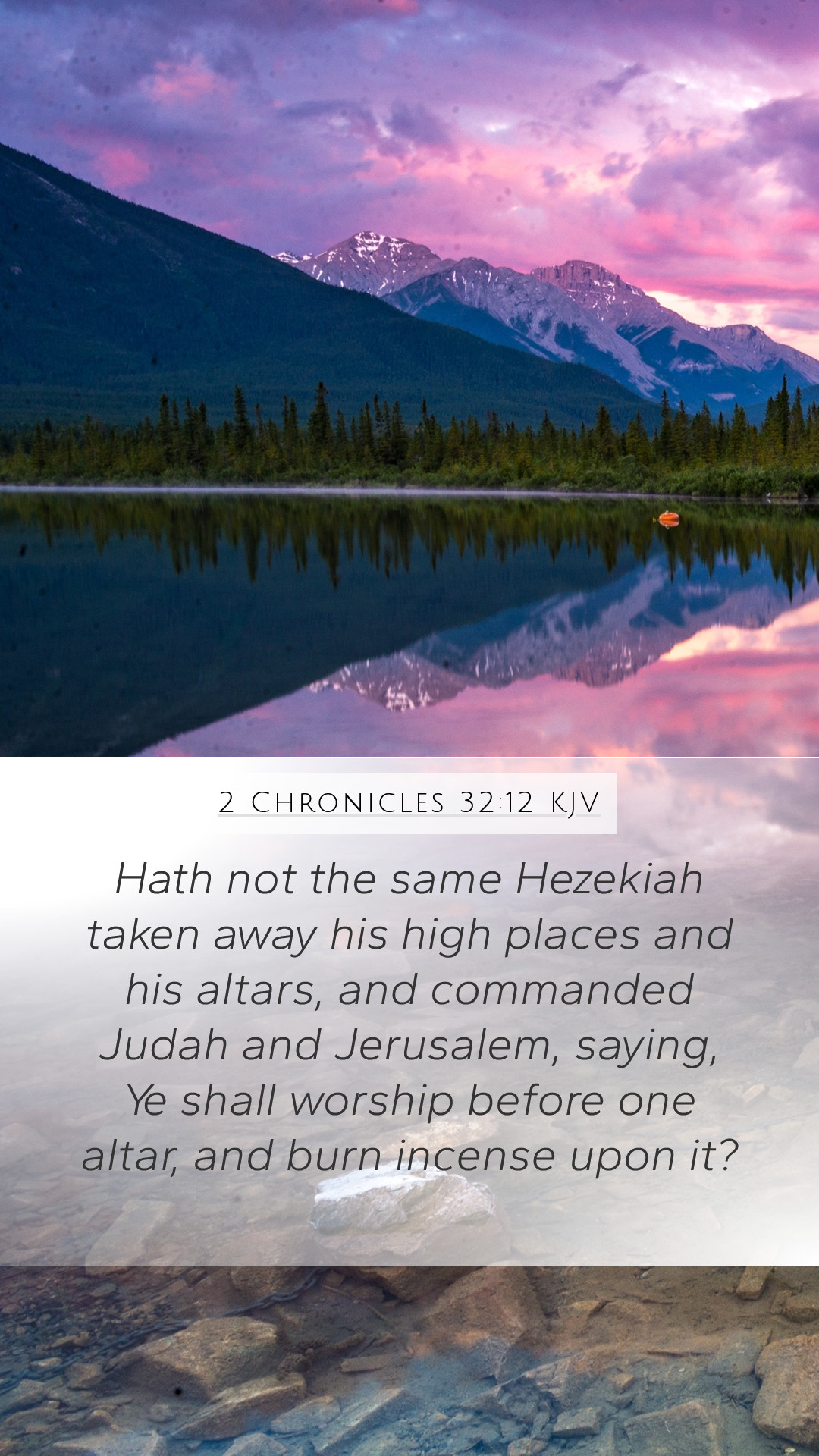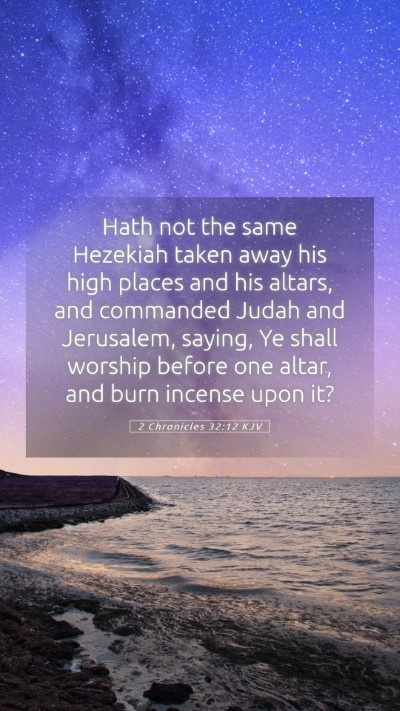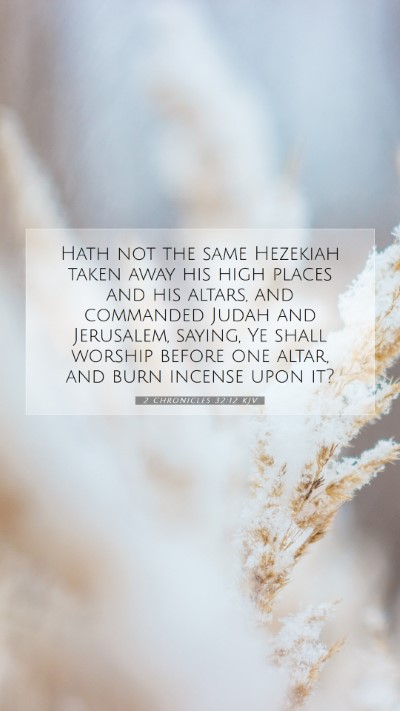Bible Verse Commentary: 2 Chronicles 32:12
Verse: "Hath not the same Hezekiah taken away his high places and his altars, and commanded Judah and Jerusalem, saying, Ye shall worship before one altar, and burn incense upon it?"
Overview of 2 Chronicles 32:12
This verse reflects the actions of King Hezekiah of Judah, emphasizing his reforms in worship that centered on the worship of the one true God. It reveals the tension between the king’s devotion to Yahweh and the resulting challenges he faced from external threats, notably from the Assyrians.
Insights from Public Domain Commentaries
Matthew Henry's Commentary
Matthew Henry highlights the religious reforms instituted by Hezekiah. He emphasizes that Hezekiah removed the high places, which were popular but not in accordance with God’s intentions, and established a central place of worship in Jerusalem. This underscores Hezekiah's commitment to purifying the worship practices in Judah and ensuring the people worshiped God as prescribed by the Law.
Albert Barnes' Notes on the Bible
Albert Barnes focuses on the significance of Hezekiah's reforms as an act of faith and obedience. By consolidating worship to a single altar, Hezekiah was acknowledging the singularity and supremacy of God, thereby aligning with the covenantal traditions of Israel. Barnes suggests that these reforms were crucial in preparing the people spiritually for the impending Assyrian siege, as it reinforced their reliance on God.
Adam Clarke's Commentary
Adam Clarke provides an in-depth analysis of the cultural implications of Hezekiah's actions. He notes that the high places were remnants of former idolatrous practices, and their removal signified a break from past traditions influenced by surrounding nations. Clarke highlights that Hezekiah’s command to worship at one altar serves as an important theological statement regarding the unity of worship and the importance of adhering strictly to divine instruction.
Meaning and Application
The central themes articulated in 2 Chronicles 32:12 include the necessity of centralizing worship, the importance of pure devotion to God, and the dangers of syncretism - blending worship of God with practices deemed idolatrous. This verse calls believers to reflect on their worship practices, encouraging a return to biblical principles and a commitment to worshiping God in the manner He desires.
Understanding Scripture in Context
When interpreting 2 Chronicles 32:12, it’s vital to consider the historical and cultural backdrop. The Assyrian empire was a formidable force, known for its military might and oppression. By consolidating worship, Hezekiah was not merely making a political statement; he was facilitating a return to covenantal faithfulness at a time when God's people were under threat. This context enhances the understanding of the verse as one of both obedience to God and a strategic response to existential crisis.
Cross References
- 2 Kings 18:4 - Discusses Hezekiah's reforms in depth.
- Isaiah 36:7 - The Assyrian challenge to Hezekiah’s faith.
- Deuteronomy 12:5 - God's command regarding worship in one place.
Conclusion
In conclusion, 2 Chronicles 32:12 serves as a powerful reminder of the importance of centralizing worship and adhering to God's instructions. Through the lens of historical context and theological principles, believers are encouraged to seek a deeper understanding of Scripture and apply these lessons to their lives.
Further Study
For those engaged in Bible study groups or seeking online Bible study, consider using this verse as a focal point discussion for understanding the implications of worship purity and the importance of centralizing faith practices. Utilizing various Bible study tools and resources can enhance comprehension of this scripture and its applications to modern faith.


